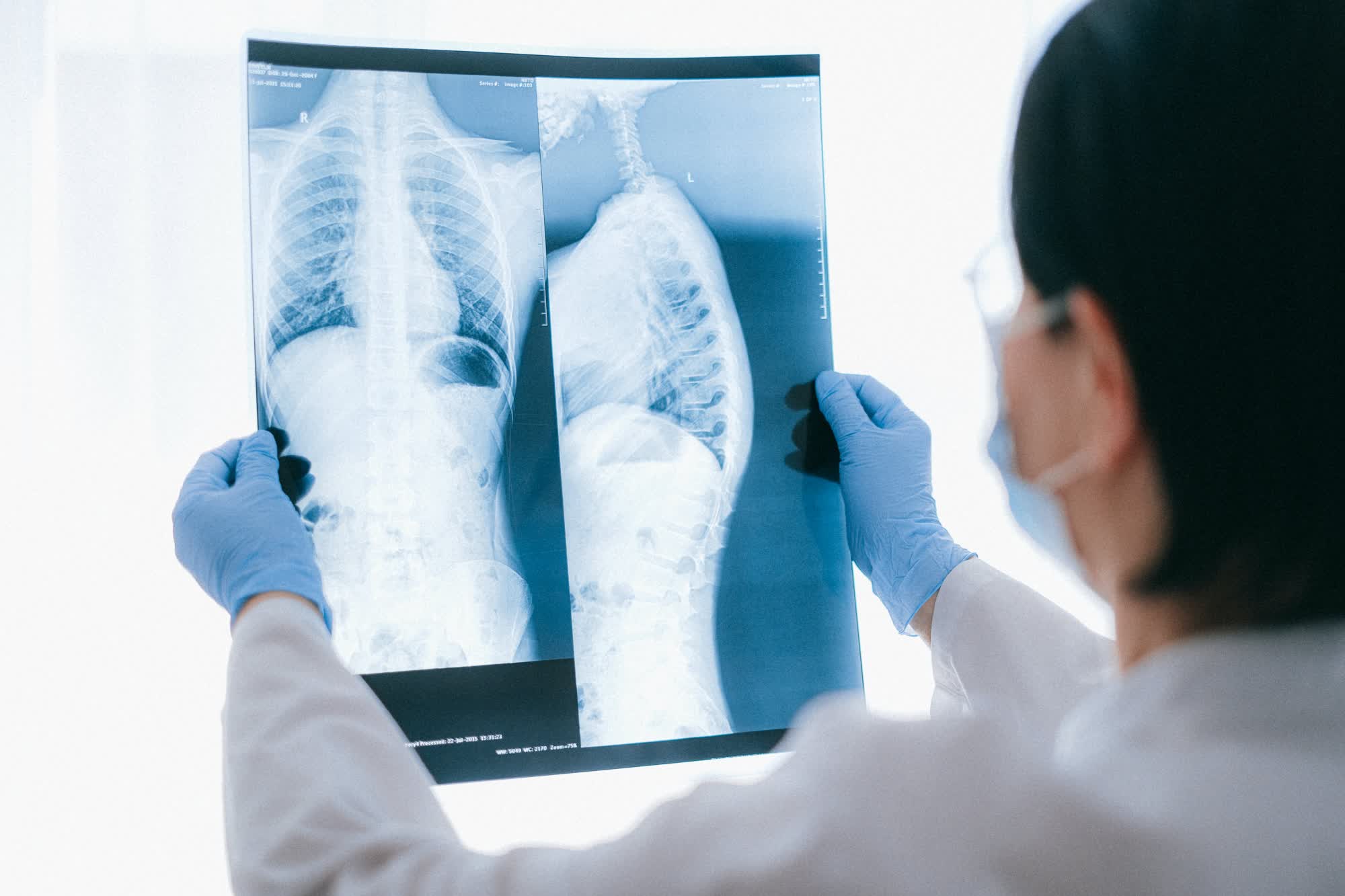Forward-looking: Artificial intelligence is equally as good – and in some cases, even better – than doctors at analyzing X-rays and diagnosing certain medical conditions. Researchers from the University of Warwick trained their AI using 2.8 million historic chest X-rays from more than 1.5 million patients to check for 37 different conditions. The X-rays were collected over a period of 13 years from three hospital networks in the UK.
For 35 of the 37 conditions, the AI was just as accurate or more accurate than a doctor's analysis at the time the X-rays were taken.
To verify the AI's accuracy, a selection of over 1,400 X-rays from the study was also examined by a group of senior radiologists. They compared the results from the AI with the diagnoses made by radiologists when the scans were originally captured.
The researchers' AI is able to analyze scans as soon as they are taken and flag any potential conditions or abnormalities. It can also leverage a large language model to digest historical reports accompanying scans for a more in-depth understanding.
Dr. Giovanni Montana, a professor of data science at Warwick and lead author on the study, said the tool could be useful as an early screening step or as an "ultimate second opinion."
AI would eliminate the unavoidable element of human error, and could also weed out bias. As Dr. Montana highlights, if a patient were referred for an X-ray with a heart problem, the doctor will inevitably focus on that organ and could perhaps overlook a problem with the lungs.
The tech could also help lessen doctors' workload, and bring concerning scans to their attention sooner than they might otherwise be able to get to them. According to a recent poll by the Royal College of Radiologists, 97 percent of the UK's cancer treatment facilities experienced delays in treatments due to a shortage of radiologists.
The team's AI, dubbed X-Raydar, is available for the research community to trial in non-clinical applications through a pair of APIs.
Image credit: Anna Shvets
